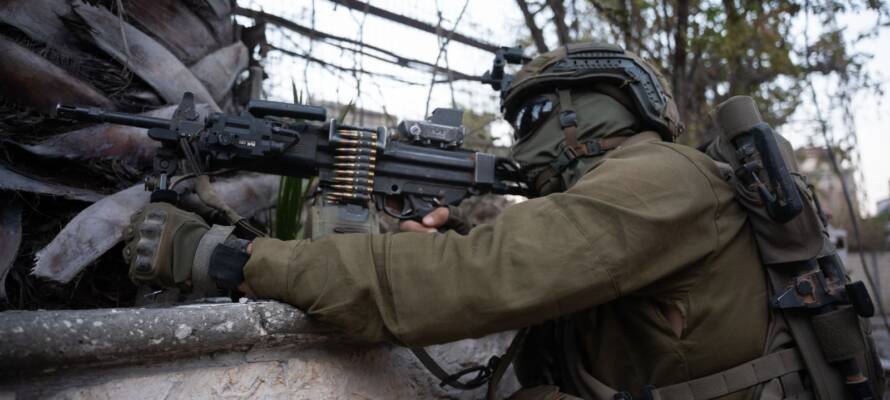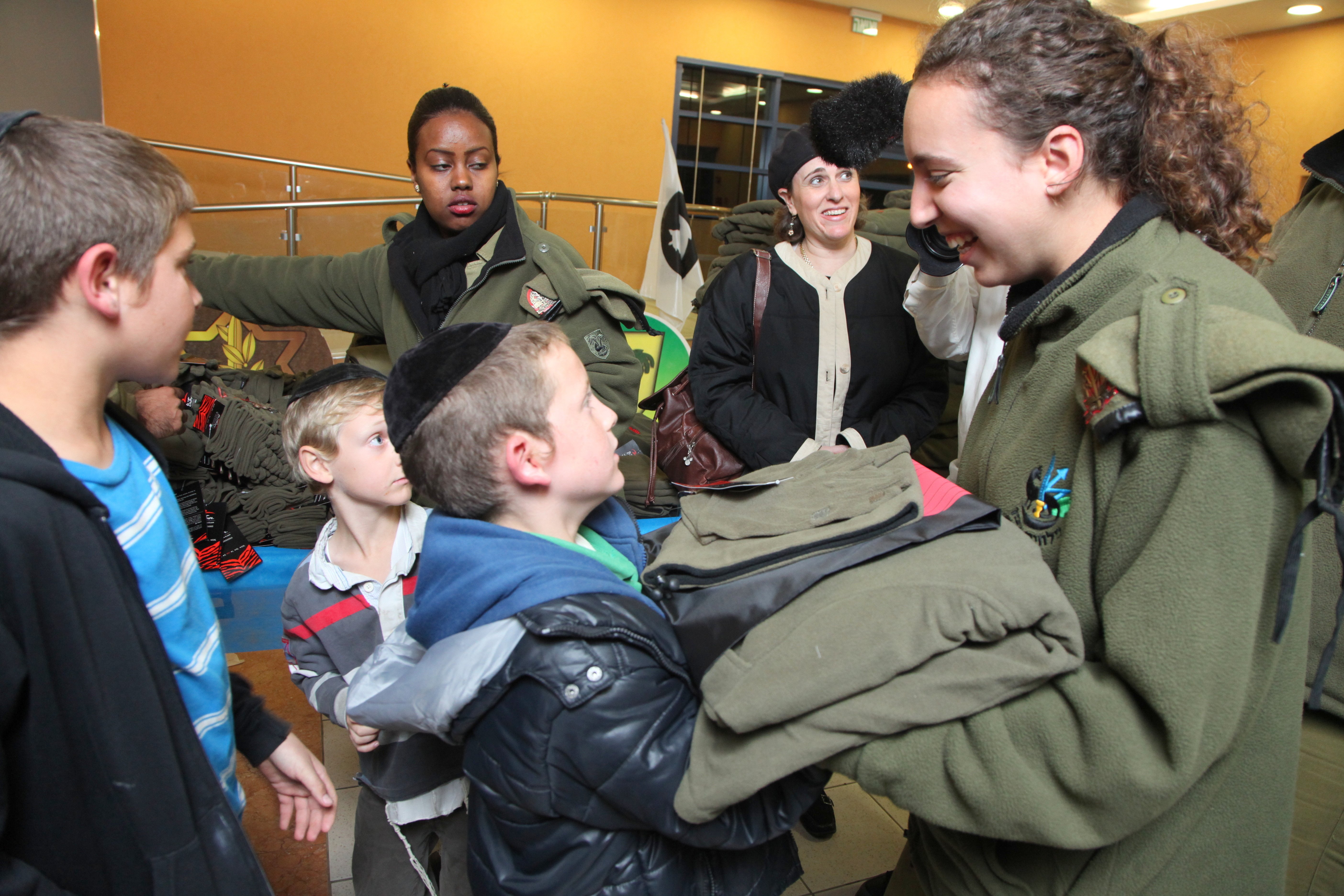‘Lebanon today is led by terrorist groups. The Lebanese regime doesn’t control its territory.’
By Joshua Marks, Amelie Botbol, JNS
A senior IDF Northern Command officer, in closed discussions on Tuesday, stressed the importance of maintaining strategic positions in Lebanon to protect the Galilee panhandle town of Metula and the northern border.
These positions would leverage elevated locations for tactical and defensive advantages against Hezbollah attacks, including long-range fire, Israel Hayom reported the officer as saying.
Metula, the northernmost town in Israel, north of Kiryat Shmona, is in ruins after the 13-month war with Iran’s Lebanese terrorist proxy Hezbollah, with more than 60% of its homes damaged by rocket fire.
MK Avigdor Liberman, head of the Yisrael Beiteinu Party, told JNS on Tuesday that the IDF should not withdraw from Lebanon until the Lebanese Army fully deploys along the border, Hezbollah ceases its activities near Israel, and its weapons are eliminated. Until then, “the IDF is not allowed to move a single millimeter,” he said.
Hezbollah launched some 16,000 rockets, missiles and drones at Israel since joining the war in support of Hamas on Oct. 8, 2023, a day after the Gaza-based terrorist organization’s massacre in southern Israel. Nearly 70,000 residents were internally displaced as 43 communities near the Lebanese border were evacuated.
According to the Alma Research and Education Center, which monitors the northern fronts, 45 Israeli civilians and 83 IDF soldiers were killed during the war, which ended when a 60-day ceasefire took hold on Nov. 27.
The Israeli Finance Ministry estimates that property damage along the northern border has reached 1.5 billion shekels ($410 million). Additionally, indirect damages in Israeli communities near the border are projected to total between 3.5 billion and 4 billion shekels ($960 million-$1.1 billion).
Plans are also underway to construct an advanced border barrier, featuring anti-vehicle measures and inspired by recent Syrian border upgrades, to address evolving security threats.
Religious Zionism Party Knesset member Ohad Tal underscored the need to protect Israeli citizens and enforce agreements preventing Hezbollah from rearming or remaining south of the Litani River.
“What we should do is fulfill the promise we made to our people by allowing them to return to their homes safely without any threat coming from Lebanon,” Tal told JNS on Tuesday.
“The [ceasefire] agreement says Hezbollah cannot go back to the Litani river, rearm, get weapons from Iran. If it’s fulfilled, we can leave, but as long as we see that they are trying to rearm themselves we will have to stay and make sure they don’t pose a threat to our citizens,” he said.
“It’s very hard to predict what will happen. On one hand, we have to remember that Hezbollah is a radical terror organization with one goal, which is to destroy the one and only Jewish state. I don’t think that they will give up their desire to do so,” Tal said.
“On the other hand, they do understand that they are weak, their leadership was destroyed, they lost most of their ammunition and many of their officers and manpower. They also know that Iran is in a time of weakness and can’t back them, Syria is no longer part of their coalition. They are much more isolated, weaker and maybe they’ll give up,” he added.
“This might lead them to maintain a situation where the ceasefire is kept. If not, we will have to act and make sure the agreement is respected and that they will no longer pose a threat to our citizens,” Tal said.
Meanwhile, Lebanese villages near the border remain heavily affected by the war, with displaced residents and slow reconstruction efforts. As the ceasefire nears its end in three and a half weeks, Israeli forces remain on high alert, prepared to resume operations if Hezbollah initiates further hostilities.
Under the terms of the agreement, Israeli forces are supposed to gradually withdraw from Southern Lebanon, where they have been operating since early October.
As the IDF withdraws, Lebanese Army and United Nations Interim Force in Lebanon (UNIFIL) forces are required to enter these areas and ensure that Hezbollah retreats north of the Litani River, located some 18 miles north of the border with Israel.
The United States and France are overseeing compliance by receiving regular updates from diplomats and military officials.
Israeli troops continue to find massive weapons caches and terrorist infrastructure in Southern Lebanon, and Hezbollah has repeatedly violated the truce, with the Alma Center on Dec. 30 recording 99 ceasefire violations since Nov. 27.
Military sources emphasized to Israel Hayom that while post-ceasefire operations in Lebanon depend on political decisions, the IDF is prepared to secure the northern border by any means necessary.
The IDF is monitoring agreement compliance via U.S. intermediaries and sharing intelligence with Lebanese forces, though assessments indicate Lebanon may struggle to meet deployment requirements due to resource limitations and competing priorities, especially on the Syrian border.
Mahmoud Qamati, a member of parliament in Beirut and the deputy head of Hezbollah’s political council, told Hezbollah-affiliated Al Manar television on Monday that “our patience extends 60 days. Day 61 brings change. Forces in Lebanon become occupiers, and we will respond accordingly.”
Likud lawmaker Tsega Melaku highlighted to JNS on Tuesday that Israel’s conflict is with Hezbollah, not the Lebanese people, describing the group as an Iranian proxy aimed at Israel’s destruction.
“We don’t need Lebanese territory, and we don’t want to settle in Lebanon or live there, but we have to defend ourselves. In 2006, after the [Second Lebanon] War ended, the U.N. [Security Council] Resolution [1701] stipulated that the Lebanese side of the border with Israel would be defended by UNIFIL, but they didn’t help us,” she said.
“Everyone is losing in this war but especially the Lebanese people; the situation is bad. In the past, Arab countries especially the UAE supported Lebanon economically, but today it is not the case. Israel does not need to stay in Lebanon, but we have the right to protect ourselves,” Melaku said.
“Lebanon today is led by terrorist groups. The Lebanese regime doesn’t control its territory. Still now, Hezbollah’s army has a presence in Southern Lebanon, and I don’t think the ceasefire helps because they want to exterminate us and the Lebanese government is very weak,” she said.
Hezbollah weapons facility and vehicle
Israeli Air Force strikes targeted a weapons storage facility and a vehicle on Tuesday after soldiers observed Hezbollah terrorists transferring weapons to a vehicle in Southern Lebanon, the military said on Wednesday morning.
“The IDF is operating in accordance with the ceasefire understandings between Israel and Lebanon. The IDF remains deployed in Southern Lebanon and will operate against any threat to the State of Israel and its citizens,” it added.
Hidden Hezbollah weapons.
The IDF on Tuesday night highlighted efforts by the 769th “Hiram” Brigade, under the command of the 91st “Galilee” Division, to dismantle Hezbollah terrorist infrastructure Southern Lebanon in line with the ceasefire agreement.
Over the past week, Golani Brigade soldiers and Erez Program troops, operating under the 769th Brigade’s command in the Saluki region, conducted searches and uncovered a hidden weapons storage facility in difficult terrain. The facility contained a large cache of weaponry, including launchers, missiles and other explosive devices.
During a subsequent raid on nearby structures, additional weapons were found, including missile launchers, explosives, dozens of AK-47 rifles, grenades, wire-guided missiles, mines, surveillance equipment, explosive devices and tactical combat gear.
Troops dismantled the weapons storage facility and confiscated the armaments. We are honored to thank the young men and women of the IDF who risk their lives every day to defend the citizens of Israel. Join us in sending winter care packages and personal notes of support to Israeli soldiers who are out in the cold all day. Warm up a soldier's heart with essential winter wear including fleece jackets, hats, gloves and more. Keep an entire unit warm! THE SOLDIERS REALLY APPRECIATE YOUR LOVE AND CONCERN!
The Erez Program (Unit 169) is an elite program for the training and development of combat commanders for IDF field units. It is named after Brig.-Gen. Erez Gerstein, who commanded the Lebanon Liaison Unit and died in an explosion in Southern Lebanon in March 1999.
Keep Israeli Soldiers Warm - Send Winter Jackets!



